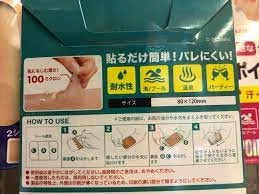Onsen Rules in Japan
Visiting an onsen (hot spring) in Japan is a unique cultural experience, and there are a few key points to keep in mind to ensure you enjoy it respectfully and comfortably. Here’s what you need to know:
1. Nudity is the Norm
Most onsens require you to bathe completely naked. Swimsuits and clothing are generally not allowed.
Some onsens offer private baths or mixed-gender baths where wearing a towel or bathing suit may be permitted, but these are less common.
2. Separate Male and Female Baths
Public onsens usually have separate baths for men and women, with clear signs to indicate each side.
Signs may be color-coded (blue for men and red for women) or have symbols, so double-check to ensure you're entering the correct side.
Some onsens with only one bath will have separate hours for men and women, so inquire with staff if this should be the case.
3. Wash Thoroughly Before Entering
Before entering the communal bath, you must wash your body thoroughly. There are shower stations with soap, shampoo, and sometimes conditioner for this purpose.
Sit on a small stool to wash (never stand while showering), and ensure you rinse off all soap and shampoo before entering the onsen.
4. No Towels in the Bath
Bring a small towel to use for drying yourself when you exit. This towel can be kept on your head while you soak, but do not let it touch the water.
Large towels are left in the locker room.
5. Tattoos May Be Prohibited
Tattoos are sometimes associated with organized crime in Japan, so some onsens restrict entry for guests with visible tattoos.
Some onsens are more lenient or provide tattoo covers, but it’s best to check beforehand if you have tattoos. Alternatively, you can look for tattoo-friendly onsens, which are becoming more common in some areas.
Pro tip: Stores like Don Quijote and Daiso sell tattoo covers that will hold up in an onsen and be peeled off later.
Sample tattoo cover
6. Avoid Using Phones or Cameras
Onsens are spaces for relaxation, so phones and cameras are generally not allowed to ensure privacy.
Enjoy the peaceful atmosphere without distractions, and store your devices in your locker.
7. Stay Hydrated and Take Breaks if Needed
Onsen water can be very hot, so take breaks to avoid overheating.
Drink water before and after to stay hydrated, as the high temperatures can cause dehydration.
8. Mind the Etiquette for Quiet and Relaxation
Speak quietly and avoid splashing or disruptive behavior. Many people visit onsens to unwind, so respecting the calm environment is important.
Avoid prolonged eye contact, as people may feel self-conscious in this setting.
9. Health Considerations
If you have any open cuts, skin issues, or conditions that could be contagious, it’s best to avoid onsens out of respect for others.
Pregnant women, those with high blood pressure, or those prone to fainting should also consult a doctor before using hot springs.
10. Enjoy the Experience and the Benefits!
Onsen waters are often rich in minerals with purported health benefits. Some baths may have specific healing properties, such as sulfur for skin or iron for circulation, so take a moment to enjoy and feel refreshed.
By following these guidelines, you’ll have a relaxing and respectful onsen experience and enjoy a quintessential part of Japanese culture!
